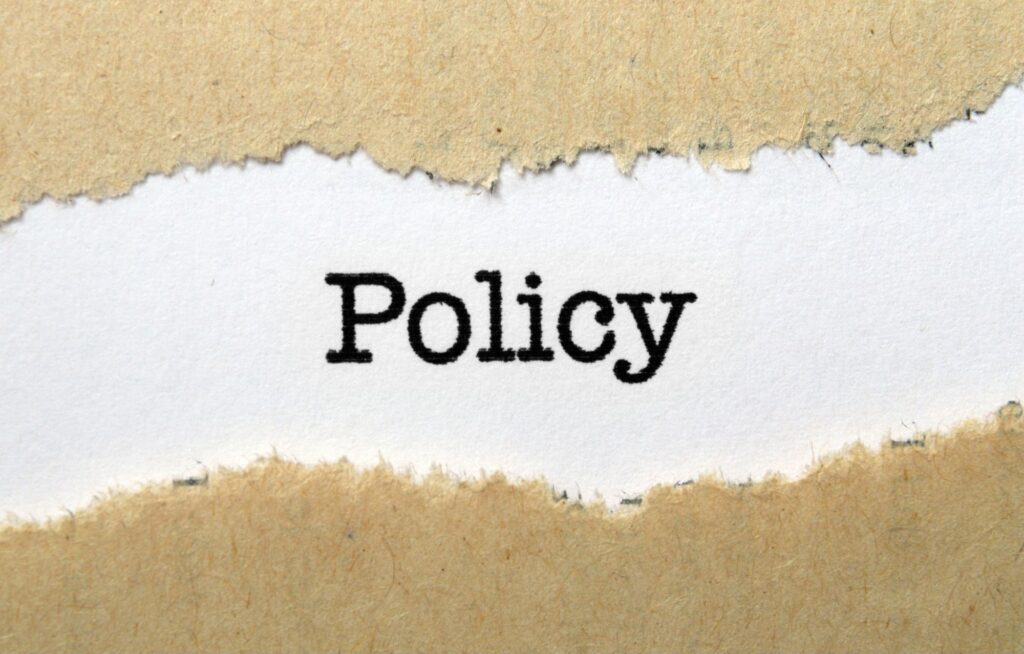President-elect Donald Trump has nominated Brooke Rollins to lead the U.S. Department of Agriculture (USDA), completing his Cabinet selections. Rollins, a Texas native and current president and CEO of the America First Policy Institute, previously served as acting director of the White House Domestic Policy Council during Trump’s first term.
The USDA, established in 1862, oversees a broad range of responsibilities, including farming, forestry, food safety, and nutrition programs such as the Supplemental Nutrition Assistance Program (SNAP). If confirmed by the Senate, Rollins will manage an agency with significant influence over rural development and agricultural policies.
Table of Contents
ToggleBackground on Brooke Rollins
Rollins was raised in Glen Rose, Texas, where she grew up on a family farm and participated in youth agricultural programs like 4-H and Future Farmers of America (FFA), eventually serving as a state officer. She earned a Bachelor of Science in agricultural development from Texas A&M University in 1994, becoming the first woman elected as student body president. She later obtained a Juris Doctor with honors from the University of Texas School of Law.
Her professional background includes serving as deputy general counsel and policy director for former Texas Governor Rick Perry. In 2003, she became president and CEO of the Texas Public Policy Foundation, a conservative think tank, where she expanded the staff from three to 100 members.
During Trump’s first term, Rollins was influential in the passage of the First Step Act, a criminal justice reform bill aimed at reducing recidivism. In 2021, she founded the America First Policy Institute to promote Trump’s policy agenda.
Rollins is married to Mark Rollins, and they have four children: Jake, Luke, Anna, and Lily.
Her nomination has garnered varied reactions. The American Farm Bureau Federation expressed optimism, noting her strong relationship with the Texas Farm Bureau and anticipating collaboration on agricultural issues.
Conversely, some progressive groups have raised concerns about her limited direct experience in agriculture policy, suggesting the appointment may prioritize loyalty over expertise.
As Rollins awaits Senate confirmation, stakeholders are closely monitoring how her leadership might shape the USDA’s direction, particularly regarding support for farmers, rural development, and the balance between traditional agriculture and modern sustainability practices.
Significance of the USDA Role
The United States Department of Agriculture (USDA), established in 1862, plays a pivotal role in American society by overseeing a wide array of programs and policies that impact daily life. Its responsibilities include:
- Supporting Farmers and Ranchers: The USDA provides financial assistance, technical support, and resources to ensure the stability and productivity of the agricultural sector.
- Promoting Agricultural Trade: The department works to enhance both domestic and international markets for U.S. agricultural products, contributing to economic growth and global food security.
- Ensuring Food Safety: Through agencies like the Food Safety and Inspection Service, the USDA sets and enforces standards to maintain the quality and safety of the nation’s food supply.
- Protecting Natural Resources: The department implements conservation programs aimed at preserving soil, water, and other natural resources, promoting sustainable agricultural practices.
- Fostering Rural Development: The USDA invests in infrastructure, housing, and economic development initiatives to improve the quality of life in rural communities.
- Administering Nutrition Assistance Programs: A significant portion of the USDA’s budget supports programs like the Supplemental Nutrition Assistance Program (SNAP), which provides food assistance to millions of low-income Americans.
Given this extensive portfolio, the Secretary of Agriculture holds a critical position in shaping policies that affect the nation’s food systems, environmental conservation efforts, and the well-being of rural economies.

Support for the Nomination
Brooke Rollins’ nomination has garnered support from various agricultural organizations and stakeholders. The American Farm Bureau Federation (AFBF) expressed optimism, highlighting her educational background from Texas A&M University, a land-grant institution, and her understanding of agricultural issues.
AFBF President Zippy Duvall stated, “We congratulate Brooke Rollins on her nomination to be Secretary of Agriculture. We’re pleased she has a good relationship with our state Farm Bureau in Texas and hope to build on it if she’s confirmed by the Senate. We’re encouraged by her statement that she’d ‘fight for America’s farmers and our nation’s agricultural communities.’ Effective leadership at USDA is more important than ever as farmers and ranchers face a struggling agricultural economy.”
Similarly, the National Sorghum Producers Chairwoman Amy France remarked, “We are eager to work with her to advance policies that strengthen the sorghum industry and benefit growers nationwide.”
These endorsements reflect a confidence in Rollins’ leadership and a belief that she will advocate effectively for the agricultural community.
Criticisms and Concerns
Despite the support, Rollins’ nomination has also faced criticism, particularly regarding her limited direct experience in agricultural policy. Some progressive groups and public health advocates have expressed concerns that her appointment may prioritize political loyalty over subject matter expertise. The Union of Concerned Scientists noted, “Outside of a misdirected interest in Chinese ownership of U.S. farmland, Brooke Rollins appears to have no agricultural policy track record to comment on.”
Additionally, Robert F. Kennedy Jr., who had lobbied for a nominee aligned with his goals of confronting the agriculture industry, viewed Rollins’ selection as a victory for traditional agricultural interests opposed to his reformist agenda. This perspective suggests that her nomination may signal a continuation of established policies rather than a shift towards more progressive reforms in the agricultural sector.
As Rollins awaits Senate confirmation, these divergent viewpoints underscore the importance of scrutinizing her qualifications and potential impact on the USDA’s future direction.
Broader Implications
Brooke Rollins’ nomination as Secretary of Agriculture carries significant implications for U.S. agricultural policy and rural development. Her leadership is expected to influence several key areas:
- Trade Policies: Given her background with the America First Policy Institute, Rollins may advocate for trade policies that prioritize American farmers, potentially revisiting tariffs and trade agreements to protect domestic agriculture. This approach could impact international trade relations and market access for U.S. agricultural products.
- Foreign Ownership of Farmland: Rollins has previously expressed concerns about foreign investments in U.S. agricultural land, particularly from China. Her tenure might see increased scrutiny and regulation of such investments to safeguard national interests.
- Nutrition Assistance Programs: The USDA administers programs like the Supplemental Nutrition Assistance Program (SNAP). Rollins’ policy stance could influence the administration and funding of these programs, affecting millions of Americans who rely on food assistance.
- Climate and Sustainability Initiatives: The department plays a crucial role in environmental conservation and sustainable farming practices. Rollins’ approach to these issues will be pivotal in determining the USDA’s commitment to addressing climate change and promoting sustainability in agriculture.
Expert Opinions
The agricultural community has offered varied perspectives on Rollins’ nomination:
- Supportive Views: Organizations like the American Farm Bureau Federation have expressed optimism, citing her strong relationship with state Farm Bureaus and anticipating effective collaboration on agricultural issues.
- Critical Perspectives: Some experts have raised concerns about her limited direct experience in agricultural policy. The Union of Concerned Scientists noted the absence of a substantial track record in this area, suggesting that her appointment may prioritize political loyalty over expertise.
Conclusion
As Brooke Rollins awaits Senate confirmation, her nomination as Secretary of Agriculture has sparked both support and criticism. Her leadership will be instrumental in shaping the USDA’s policies on trade, foreign investment, nutrition assistance, and environmental sustainability. The agricultural sector and policymakers will closely monitor her approach to these critical issues, which have far-reaching implications for the nation’s food systems and rural communities.




